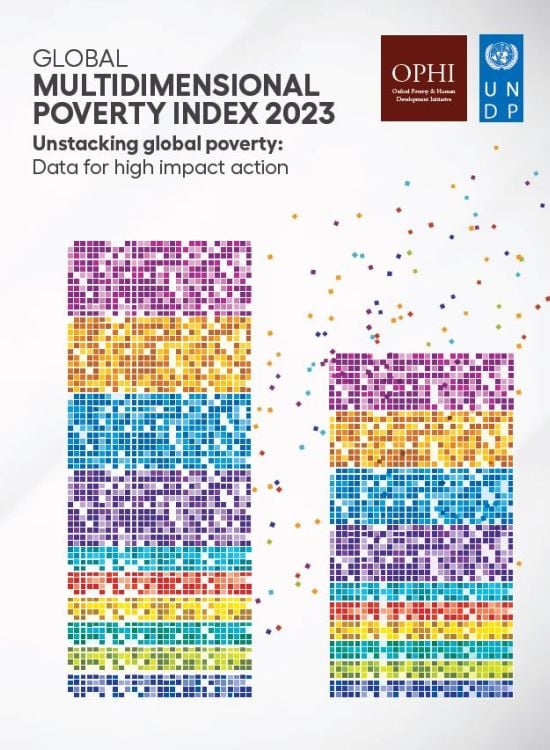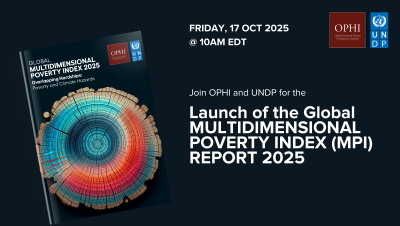2023 Global Multidimensional Poverty Index (MPI)
Unstacking global poverty: Data for high impact action

UNDP (United Nations Development Programme). 2023. 2023 Global Multidimensional Poverty Index (MPI): Unstacking global poverty: Data for high impact action. New York.
2023 Global Multidimensional Poverty Index (MPI)
Unstacking global poverty: Data for high impact action
This report presents a compact update on the state of multidimensional poverty (henceforth referred to as “poverty”) in the world. It compiles data from 110 developing countries covering 6.1 billion people, accounting for 92 percent of the population in developing countries. It tells an important and persistent story about how prevalent poverty is in the world and provides insights into the lives of poor people, their deprivations and how intense their poverty is—to inform and accelerate efforts to end poverty in all its forms. As still only a few countries have data from after the COVID-19 pandemic, the report urgently calls for updated multidimensional poverty data. And while providing a sobering annual stock take of global poverty, the report also highlights examples of success in every region.
The publication of the 2023 Multidimensional Poverty Index Report was supported by financial contribution by the Republic of Korea.
Learn more about MPI
Key Findings (2023, across 110 countries):
25
countries halved multidimensional poverty within 15 Years.
534m
485m
566m
MPI Indicators
Dimensions of Poverty | Indicator | Deprived if living in the household where… | Weight |
|---|---|---|---|
Health | Nutrition | Any adult under 70 years of age or any child for whom there is nutritional information is undernourished. | 1/6 |
Child mortality | Any child under the age of 18 years has died in the family in the five-year period preceding the survey. | 1/6 | |
Education | Years of schooling | No household member aged ‘school entrance age + six years or older has completed at least six years of schooling. | 1/6 |
School attendance | Any school-aged child is not attending school up to the age at which he/she would complete class eight. | 1/6 | |
Standard of living | Cooking Fuel | The household cooks with dung, wood, charcoal or coal. | 1/18 |
Sanitation | The household’s sanitation facility is not improved (according to SDG guidelines) or it is improved but shared with other households. | 1/18 | |
Drinking Water | The household does not have access to improved drinking water (according to SDG guidelines) or improved drinking water is at least a 30-minute walk from home, round trip. | 1/18 | |
Electricity | The household has no electricity. | 1/18 | |
Housing | At least one of the three housing materials for roof, walls and floor are inadequate: the floor is of natural materials and/or the roof and/or walls are of natural or rudimentary materials. | 1/18 | |
Assets | The household does not own more than one of these assets: radio, television, telephone, computer, animal cart, bicycle, motorbike or refrigerator, and does not own a car or truck. | 1/18 |
